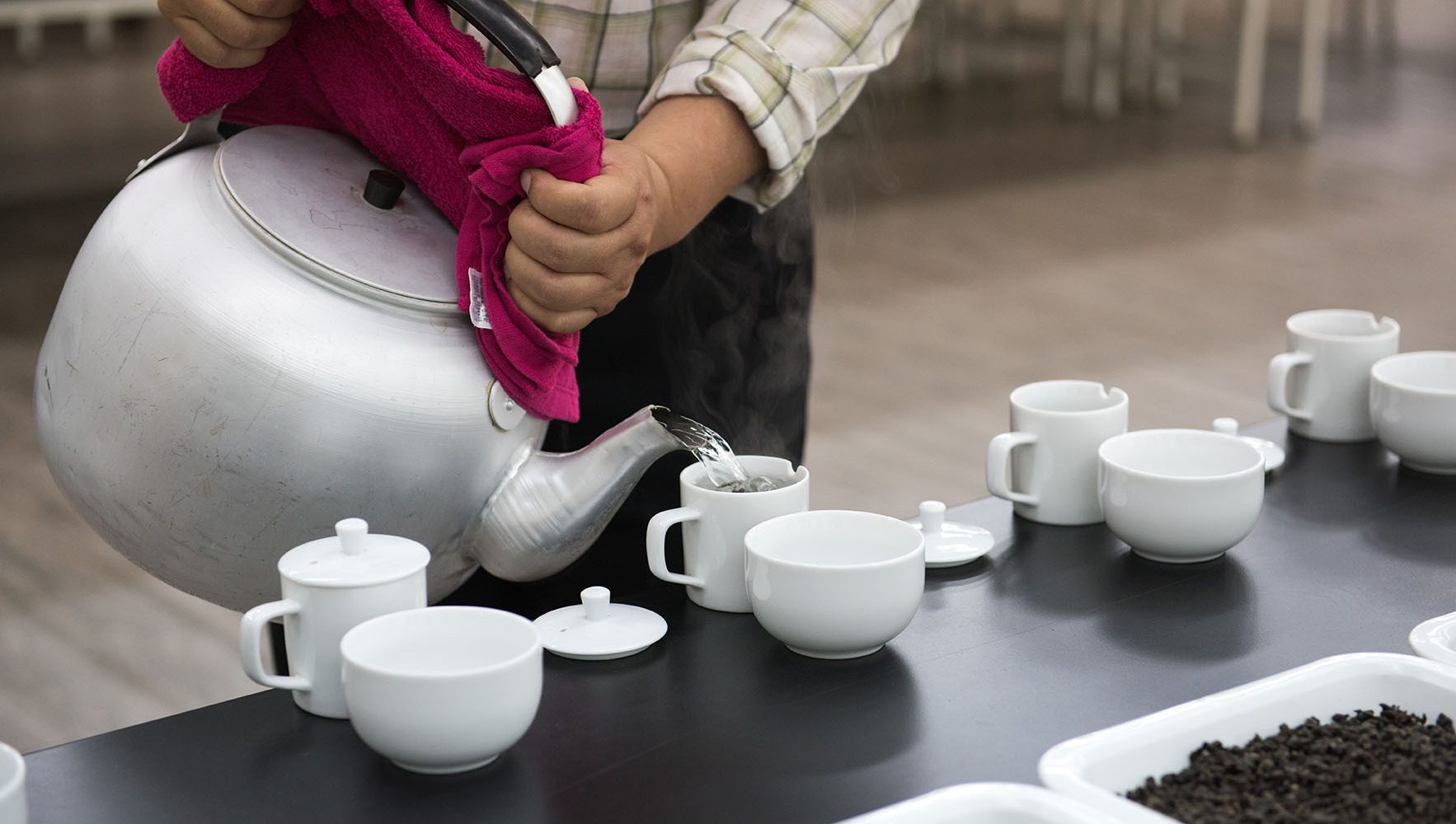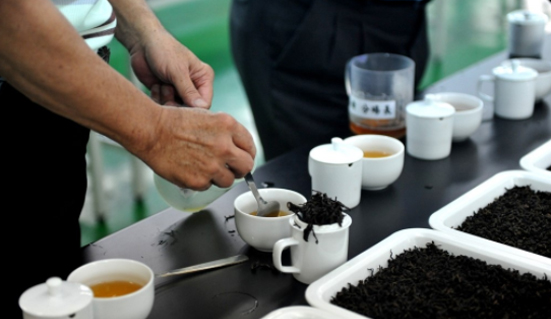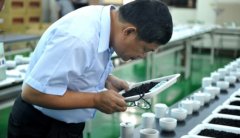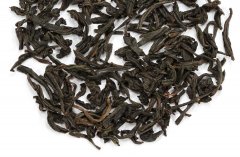It is best to pour out the tea several times why the first bubble should be poured out and the temperature of the tea is the right temperature.
When you attend a tea evaluation meeting, ask yourself:
How does this tea smell?
What's the smell in the lid?
Is the smell still there? Which part stays longer? Which is shorter?
Is there any part of the scent that reminds you of anything else?
How does this tea taste?
Is there any smell that appears first, and then what kind of smell comes next?
What does the different smell remind you of?
What part of your tongue gives you the smell?
How long is the taste?
Will the taste change during the tasting process?
What is the texture of the tea?
Do you think your throat smells? Or somewhere else?
How do the soaked leaves smell? Is it the same as tea? Or is it different?
What are the feature differences between different choices?
How does your stomach feel a few seconds after the tea is swallowed? A few minutes?
Do you have any other feelings?

In this industry, some professionals prefer to spit out tea so that they don't have to eat a lot of tea, because some people really do it all day. However, for tea connoisseurs, when judging the quality of a kind of tea, the difference between swallowing and swallowing is very important. Sometimes there's a big difference. Therefore, I suggest that those who are willing to give up mass market quality to experience the complete process of drinking a good cup of tea.
After several courses and a series of choices, you will begin to appreciate which kind of tea is the better one you personally like. However, since your taste buds and body need time to adapt to good tea, everyone may be very different in this respect, so be sure to give yourself some time and more opportunities.
Tea evaluation parameters
ISO professional standards recommend 2 grams of tea per 100ml of tea. This means that there are about 3 grams in a 150 ml cup.
The same ISO standard sets the temperature of the injected water to 100 ℃. This is useless for most varieties except BOP grade or below, or other old whole-leaf black tea, or post-fermented tea. The temperature basically destroys some amino acids, which give quality tea a unique gourmet value. It also points out that there are too many bitter Gallic catechins in green tea and lack in black tea. I don't believe that any appraiser can tell what the brewed tea tastes like from the hot tea. Click here to see a general guide to the brewing temperature of different types of tea.
ISO recommends that the soaking time is 6 minutes. This is a good way to use large jars. A small pot of traditional fine tea will be enough for 5-5.5 minutes.
Click here to see some of the parameters I suggest you start using. Please note that they are full-leaf high-quality tea. Broken leaves and lower grades may need to be adjusted accordingly.

People who are not used to drinking several different teas at a time are easily taken away by the process and drink too much. Drinking tea can cause as bad a hangover as drinking. It is recommended that beginners eat well, don't drink, and don't be too tired before the evaluation. Maintaining a type of tea also helps you get into the process easily. Crossing the tea category and making the tea stronger than recommended are two factors, sometimes even experienced tea people.
However, tea is a substance that is easy to adapt to. Usually by the third time, you will have a lot of capacity and it will not be easy to get drunk unless you are really fierce. Some people don't drink tea at all.
Some people try to use scientific methods to explain the reasons for drinking tea, but I find these methods unconvincing because they contradict my experience and do not explain most of my doubts. I won't explain it here.
Usually, there is no problem for a person to drink as many drinks as he wants in a day. Drinking tea usually only drinks a large amount of tea continuously in a very short period of time, especially when different kinds of tea are involved.
Important Notice :
前街咖啡 FrontStreet Coffee has moved to new addredd:
FrontStreet Coffee Address: 315,Donghua East Road,GuangZhou
Tel:020 38364473
- Prev

Which black tea tastes good how to describe the taste characteristics describe the steps and methods of tea review
Cup test is the fastest way to understand the characteristics of different tea and compare the same variety and different quality tea. This is also the door of quality control in the industry. Tools and materials choose some of the tea you want to study and compare (it is wise to compare the same type of tea in each round, especially at the beginning, before you are very confident in the process) a 150 ml cup with a tea bowl.
- Next

Which brand of Zhengshan race is better than the authentic Zhengshan race? why is it broken and which grade tastes better?
Zhengshan small, also known as Neishan small, more commonly known in the West as Zhengshan race black tea, and other origin: Wuyi Mountain, Fujian Province, this article includes the well-known pine smoked version and the little-known Wuyi traditional Xiaozhong kungfu black tea. Smoked tea: a kind of tea that the tea maker didn't like. She frowned when she sent me a sample of the pine smoked mountain race along with the others. I have to...
Related
- Unexpected! Ruixing Telunsu lattes use a smoothie machine to foam milk?!
- % Arabia's first store in Henan opens into the village?! Netizen: Thought it was P's
- Does an authentic standard mocha coffee recipe use chocolate sauce or powder? Mocha Latte/Dirty Coffee/Salty Mocha Coffee Recipe Share!
- What is the difference between Vietnam egg coffee and Norway egg coffee? Hand-brewed single product coffee filter paper filter cloth filter flat solution!
- What is the difference between sun-cured and honey-treated coffee? What are the differences in the flavor characteristics of sun-honey coffee?
- How to make Italian latte! How much milk does a standard latte use/what should the ratio of coffee to milk be?
- How to make butter American/butter latte/butter Dirty coffee? Is hand-brewed coffee good with butter?
- Is Dirty the cold version of Australian White? What is the difference between dirty coffee/decent coffee and Australian white espresso?
- Relationship between brewing time and coffee extraction parameters How to make the brewing time fall to 2 minutes?
- Got entangled?! Lucky opens a new store, Mixue Ice City, and pursues it as a neighbor!

